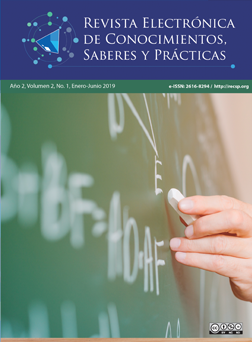Management of Intercultural Communication from the Dialogue of Knowledge and Doings
DOI:
https://doi.org/10.5377/recsp.v2i1.8163Keywords:
Communication, Intercultural, Dialogue, Knowledge, DoingsAbstract
The Management of Intercultural Communication plays a fundamental and strate- gic role in the Dialogue of Knowledge and Facts, because it harmonizes, shares and builds collectively. Therefore, it is important to share and describe the processes that are experienced from Western communication and intercultural communication and the commitment to the management of a more human communication. Intercultural communication is an element under construction, which has been gaining ground due to its approach and humanization of good practices that contribute to a better and inclusive world. Intercultural communication has to do with aspects of the pro- motion of interpersonal and collective relationships, where they share knowledge and knowledge through practice, brotherhood and reciprocity. In the dialogues of knowledge and doers that they propose and do are the same peoples, they are the indigenous and afro-descendant communities, through their experiences and realities, through their own construction processes, their families and communities, in order to contribute and create opportunities for visibility and participatory construction.
Downloads
1641
Resumen (Audio) (Español (España)) 165
Abstract (Audio) 168
Published
How to Cite
Issue
Section
License
At the moment in which a work is accepted for publication, it is understood that the author gives the Electronic Magazine of Knowledge and Practice (RECSP) exclusive rights of reproduction, distribution and sale of his manuscript for exploitation in all countries of the world in paper magazine format, as well as in any other magnetic, optical and digital media. The authors will also transfer to RECSP the rights of public communication for its dissemination and exploitation through Intranets, Internet and any wireless portals and devices decided by the publisher, by making available to users for online consultation of its content and its extract. , for printing on paper and / or for downloading and filing, all in the terms and conditions that appear on the website where the work is housed. In turn, the RECSP authorizes the authors of the works published in the journal to offer a copy of these works once published on their personal webs or in any open access repository. Together with this copy, a specific mention of the RECSP must be included, citing the year and the number of the journal in which the article or research note was published and adding, in addition, the link to the RECSP website.

